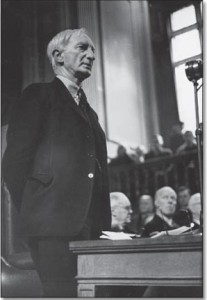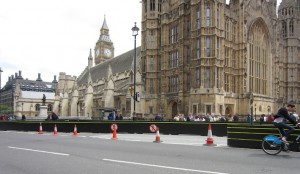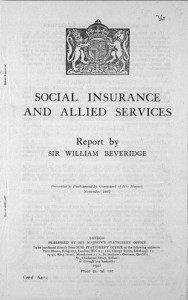Rifts in the public realm
Ownership of public information
One of the few surviving local papers dropped through my letterbox at regular intervals is informing me about events in the area. It includes various phone numbers of services provided by the local authority which cannot be reached face to face at a town hall or elsewhere by its rate payers, under the convenient pretext of austerity measures. I do not know a single city with over a quarter of a million inhabitants in the civilised world which does not have a counter where citizens can ask questions, carry out civic duties, voice complaints and hold local politicians to account.
This is why the note from the local authority in the local paper astounded me. In a patronising tone, the local authority threatened to take the paper to court if it continued to print information about events it is facilitating for its inhabitants, because – the council claims – this information is copyrighted. All these events are financed from taxes, mainly central but also local, so such a claim to ownership of information is questionable in a representative democracy. Moreover, the very scarce information dispatched by the council selectively requires that those who really want to know about, or worse still, participate in such events need to contact the council by phone or by electronic means. The particular events described in full with dates and places in the local newspaper were aimed at elderly persons for whom written information, a note which can be pinned on a notice board for memory, is still the most convenient means of communication, but perish the thought to suit the citizens.
It would be worthwhile to explore how legitimate the council’s claim of copyright is to information about its activities are financed from the public purse. The Chartered Institute of Journalists of which I am a long standing member may assist me in that.
70 years after the Beveridge report
BBC radio 4 had organised a lengthy discussion about the British Welfare State and its future or rather, as it turned out, the end of an era at the occasion of the 70th anniversary of the Beveridge Report.
It must have been painful for the millions of recipients of this intended social equaliser to have it dismissed by very wealthy guests, all of whom have benefited from universal services and none of whom have ever experienced hardship, let alone poverty. Safe for a recorded interview with a deserving casualty of the current economic crisis, nobody at the receiving end of the crisis had been invited to the table, probably as neither journalists nor the chattering classes may have been able to converse with any of them in a language they no longer share in their elevated part of the world.

Dia 3 William Beveridge speaking at Caxton Hall about his welfare reform. Source: http://open.jorum.ac.uk/xmlui/bitstream/handle/123456789/789/Items/K100_9_section2.html
The Beveridge report published in 1942 and subsequently implemented by a labour government after world war two was designed to combat five evils, squalor, ignorance, want, idleness and disease, by introducing social security and universal benefits paid for by social insurance to underpin social cohesion and solidarity. Over seven decades, this principle had been all but eroded, as most benefits are means tested, something Beveridge opposed. It is a truism that the world has changed since then and society with it. What has not changed though and has probably got worse in absolute and even relative terms is the gawping gap between the rich and the poor. Nor have basic human needs changed of health, education, shelter, childcare, earning an income of which one can live, means of living after a paid working life, in short human and social wellbeing. What has changed is that the establishment from left to right does not consider it necessary any longer for society as a whole to provide a universal basis for the wellbeing of everyone in a civilised society.
There was consensus that Beveridge’s welfare state had its day, that only the deserving poor and the most destitute may be given conditional assistance which was best provided by charitable institutions and volunteering. Meanwhile the state could withdraw while nevertheless protecting its own interest and those who support it by lowering taxes of the riches, easing controls protecting the public interest, contracting out public services to the private for profit sector, and disposing of public property and land – selling off the family silver as MacMillan coined it a long time ago.
According to this invited elite the welfare state was obsolete, belt tightening was of the essence regardless of physical and mental consequences endured by a growing majority whose income cannot secure basic living standards, let alone by those out of work through no fault of their own as full employment is incompatible with neo-liberal capitalism.
This is a far cry from the country I experienced during my youth when emancipation was reaching an increasingly encompassing and enabling society, when individualism was tamed by social concern, when access to basic living standards and opportunities for betterment was widespread. Perhaps that period was an exception in a much longer history of western capitalist society and something my generation can still dream about while awaiting charitable hand-outs and humbling exclusion from the endowed minority. Now here is a Christmas ‘good will’ idea. What about handing out to those most in need a year’s income of all the establishment figures who were invited to comment on the welfare state, letting them live on the minimum wage for a year and inviting them to share their one-off experience with those who endure it during their whole lives.
State privilege
What is the justification of the state exempting itself from the laws it imposes on the rest of us? How can 40 fires in the Houses of Parliament occur when anyone of us need planning permission for a garden shed? The answer lies in deemed planning permission which the state grants itself. It includes avoiding proper inspections of fire hazards and the likes and putting potentially the large number of those working on these premises at risk.
Should the Houses of Parliament burn down, who would have to foot the bill? The MPs who exclude themselves and their behaviour from public scrutiny or the tax paying public which would have no say in the matter? By privatising fire engines, their maintenance and possibly their running, there will be even less concern expressed. How does that tally with the principles of accountable democracy?

Dia 5 Protecting the parliamentarian, but what about protecting the houses of parliament? Photo Judith Ryser



